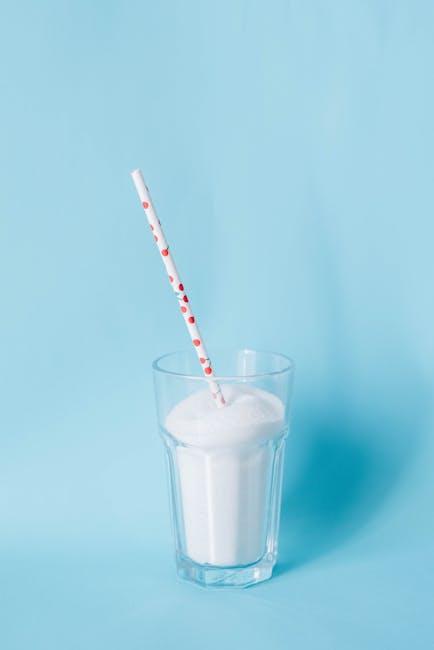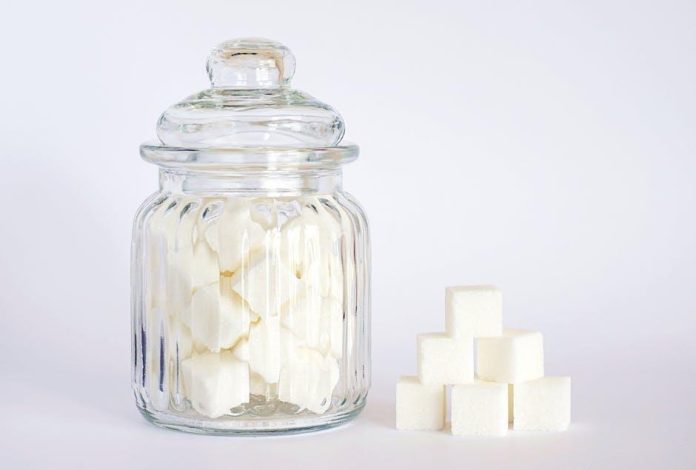In a world where the quest for healthier lifestyles often feels like navigating a labyrinth, sugar substitutes have emerged as the glittering beacon of hope for the sweet-toothed among us. Promising the indulgence of sweetness without the guilt of calories, these alternatives have found their way into everything from morning coffees to decadent desserts. Yet, beneath their alluring promise lies a question that nags at the conscience of the health-conscious: can these seemingly innocuous sweeteners be harboring hidden dangers? As we peel back the layers of this sugary conundrum, we delve into the scientific, the anecdotal, and the yet-to-be-discovered, to uncover whether sugar substitutes are the friend or foe of our well-being.
Exploring the Science Behind Sugar Substitutes
In the quest for a healthier lifestyle, many people turn to sugar substitutes, hoping to satisfy their sweet cravings without the added calories. These alternatives often promise the taste of sugar with fewer health drawbacks. However, the science behind these sweeteners reveals a more complex picture. While some studies suggest potential benefits, others raise concerns about their long-term effects on health. Understanding the science requires delving into the different types of sugar substitutes available and their unique properties.
- Artificial Sweeteners: These are synthetic sugar substitutes, such as aspartame and sucralose. Although generally recognized as safe by health authorities, some research indicates possible links to metabolic issues.
- Sugar Alcohols: Found naturally in fruits and vegetables, sugar alcohols like xylitol and erythritol are popular for their lower calorie content. However, they can cause digestive issues in some individuals.
- Natural Sweeteners: Derived from plants, sweeteners like stevia and monk fruit extract are often marketed as healthier options, yet they still require more research to fully understand their impact.
While sugar substitutes can be a useful tool for reducing sugar intake, it’s essential to remain informed about their potential implications on health. Balancing their use with a well-rounded diet might be key to maximizing benefits while minimizing risks.

Understanding Potential Health Risks and Benefits
When considering the impact of sugar substitutes on health, it is essential to weigh both the potential risks and benefits. Benefits often touted include:
- Calorie reduction: Substitutes can help in cutting down calorie intake, which may aid in weight management.
- Blood sugar control: For those managing diabetes, these alternatives can provide sweetness without causing spikes in blood glucose levels.
- Dental health: Unlike sugar, many substitutes do not contribute to tooth decay.
On the flip side, there are potential risks associated with some sugar substitutes:
- Digestive issues: Some individuals may experience bloating or gas from sugar alcohols.
- Artificial sweetener concerns: There are ongoing debates about the long-term effects of synthetic sweeteners on metabolism and overall health.
- Taste perception: Over time, reliance on substitutes may alter taste preferences, leading to an increased desire for overly sweet foods.
Understanding these aspects can help consumers make informed decisions about incorporating sugar substitutes into their diets.
Navigating the World of Artificial Sweeteners Safely
When it comes to sugar substitutes, understanding the potential impacts on your health is crucial. Artificial sweeteners such as aspartame, sucralose, and saccharin are prevalent in many low-calorie products, but their safety is often debated. Some research suggests that these substitutes can be beneficial for weight management and diabetes control. However, there are concerns about possible side effects, including digestive issues and metabolic changes.
- Aspartame: Often found in diet sodas, this sweetener is scrutinized for its alleged links to headaches and mood changes.
- Sucralose: Known for its high heat stability, it’s frequently used in baking but may alter gut microbiota.
- Saccharin: One of the oldest artificial sweeteners, it’s been linked to bladder cancer in animal studies, though human evidence is lacking.
To navigate these waters safely, consider moderating your intake and opting for natural alternatives like stevia or monk fruit, which may pose fewer health risks. Balancing the use of these substitutes with whole, unprocessed foods can help maintain a healthy diet while still enjoying sweetness in moderation.

Expert Recommendations for Healthier Sweetening Choices
When it comes to making healthier choices for sweetening your food and drinks, experts suggest exploring a variety of options that align with your dietary needs and health goals. Here are some top recommendations:
- Natural Sweeteners: Consider using natural sweeteners like honey, maple syrup, or agave nectar. These options not only provide sweetness but also come with a range of vitamins and minerals.
- Stevia: Derived from the leaves of the stevia plant, this zero-calorie sweetener is a popular choice among health enthusiasts. It’s known for its natural origin and ability to sweeten without affecting blood sugar levels.
- Monk Fruit Extract: Another natural, zero-calorie option, monk fruit extract is lauded for its antioxidant properties and lack of aftertaste, making it a suitable alternative for those looking to reduce sugar intake.
- Coconut Sugar: With a lower glycemic index compared to regular sugar, coconut sugar is a favorite for those seeking a less processed option with a hint of caramel flavor.
It’s important to remember that moderation is key. Even with healthier alternatives, overconsumption can lead to unintended health consequences. Always consider your personal health conditions and consult with a healthcare professional if you have any concerns about incorporating these sweeteners into your diet.
The Conclusion
As we draw the curtain on our exploration of sugar substitutes and their potential impacts, it becomes clear that the world of sweeteners is as complex as it is sweet. While science continues to delve into the depths of their effects on our health, one thing remains certain: moderation and informed choices are key. Whether you opt for natural sweeteners or artificial ones, the path to a balanced lifestyle is paved with knowledge and mindfulness. So, as you sip your next cup of tea or coffee, take a moment to reflect on the sweet journey of discovery you’ve embarked upon. the quest for sweetness is as much about personal preference as it is about health. Stay curious, stay informed, and let your choices be as sweet as your life.


































